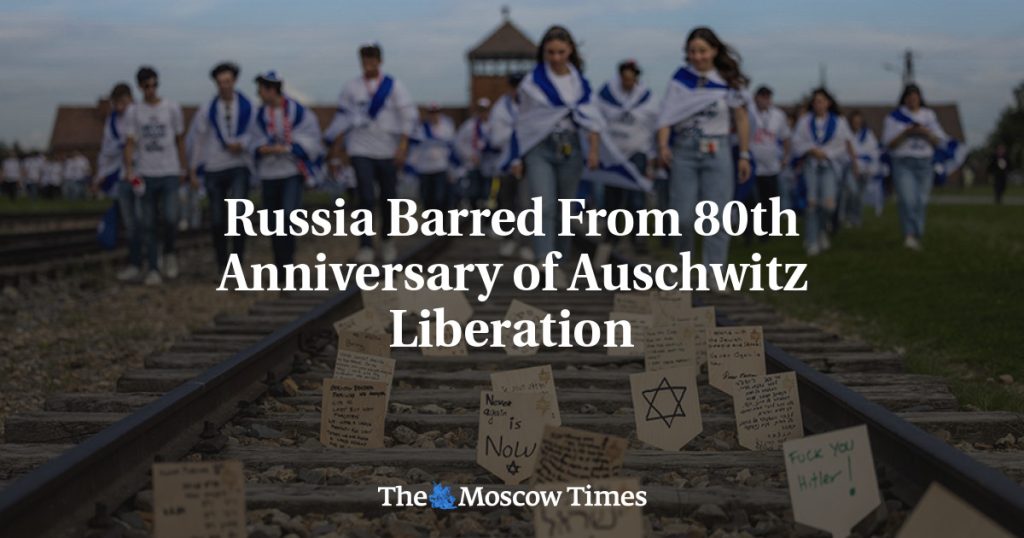The Auschwitz-Birkenau Museum in Poland announced that Russia will be barred from next year’s ceremony commemorating the 80th anniversary of the Red Army’s liberation of the Nazi German death camp Auschwitz-Birkenau. This decision marks the third time since Russia’s full-scale invasion of Ukraine in February 2022. Poland, a NATO and EU member, has been a strong supporter of Ukraine since the invasion. The museum’s director, Piotr Cywinski, stated that the exclusion of Russia is due to the fact that Moscow does not understand the value of liberty, which is a central theme of the liberation ceremony.
Before the invasion of Ukraine, Russia had always been present at the annual liberation ceremony on Jan. 27. However, the museum denounced Russia’s attack on Ukraine as a “barbaric act.” The Auschwitz-Birkenau death camp was built by Nazi Germany after it invaded Poland during World War II. The camp is a poignant symbol of the genocide committed by Nazi Germany, where six million European Jews were killed, along with over 100,000 non-Jews. The decision to exclude Russia from the commemoration highlights the ongoing tensions between Moscow and the international community.
The announcement of Russia’s exclusion from the ceremony comes amidst unprecedented challenges facing independent journalism in Russia. The Moscow Times, a publication that strives to provide accurate and unbiased reporting on Russia, has been designated an “undesirable” organization by the Russian Prosecutor General’s Office. This move criminalizes their work and puts their staff at risk of prosecution. The Moscow Times has also been labeled as a “foreign agent,” in an attempt to silence independent journalism in the country.
In response to the challenges faced by The Moscow Times, the publication is reaching out to its readers for support. The journalists at The Moscow Times refuse to be silenced and are dedicated to providing open, independent journalism in the face of repression. They are asking for financial support to continue their work, with contributions as small as $2 a month making a significant impact. By supporting The Moscow Times, readers are defending the principles of independent journalism and standing against attempts to suppress free speech in Russia.
The decision to exclude Russia from the Auschwitz-Birkenau liberation ceremony underscores the global condemnation of Moscow’s actions in Ukraine. The international community has united in support of Ukraine, with many countries imposing sanctions and taking diplomatic actions against Russia. The exclusion of Russia from the commemoration is a powerful symbolic gesture that reinforces the importance of defending human rights and freedom in the face of aggression and authoritarianism.
As tensions between Russia and the West continue to escalate, the exclusion of Russia from the Auschwitz-Birkenau commemoration serves as a reminder of the atrocities committed during World War II and the ongoing struggle for peace and freedom. The decision to bar Russia from the ceremony highlights the moral imperative to stand against tyranny and uphold the values of liberty and human dignity. Despite the challenges faced by independent journalism in Russia, organizations like The Moscow Times are determined to continue their work and provide critical insights into the events shaping the world today.














